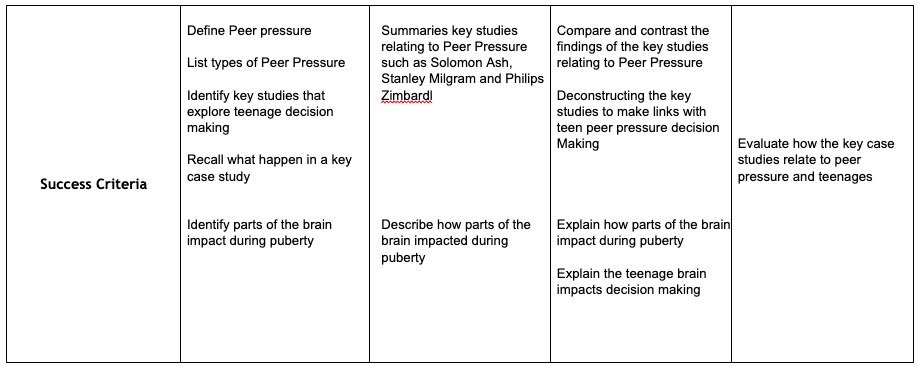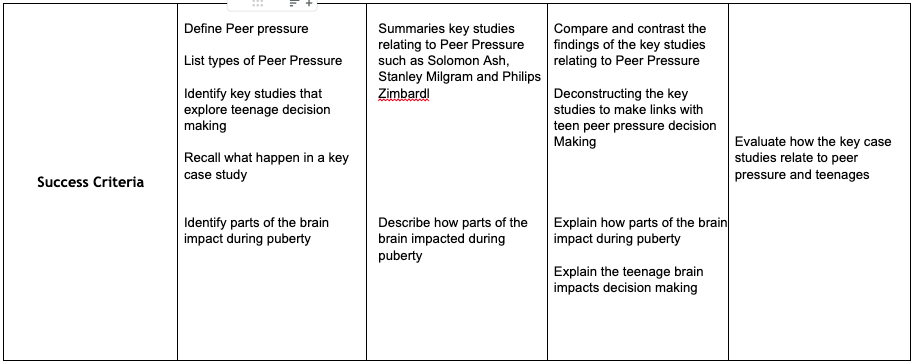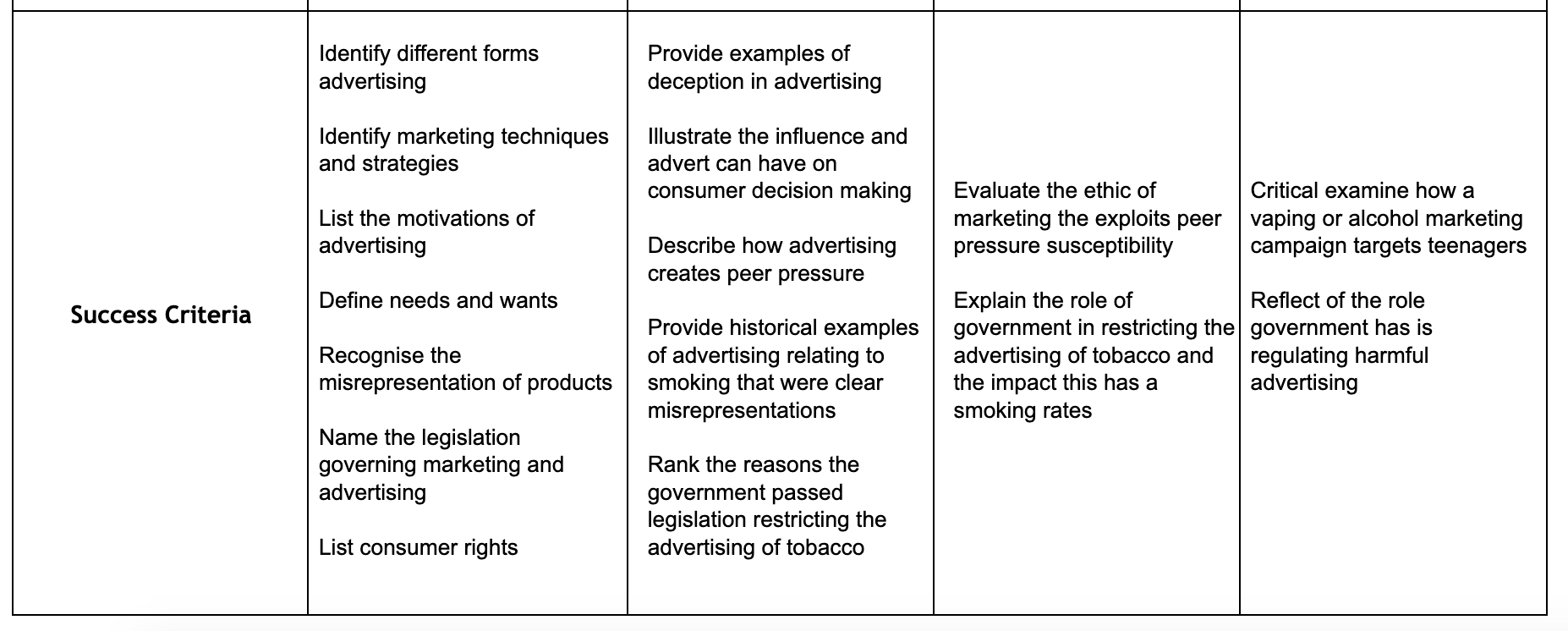10M1 Global Studies
Section outline
-

Year 10
This unit will examine the concepts of nature and nurture. At the end of the unit, students will come to understand that our environment and culture are powerful forces that impact our lives, and that much of what happens in our lives is not up to fate and genetics – but is in our hands. Nature is powerful, but so isn’t our culture. It is also important to recognise the impact of genetics and what can do to modify potential disease risks. A key focus of this unit is on how beliefs about the existence of different races – and skin colour – are myths. We will also examine the issue of discrimination in sports and the stereotyping of certain ethnic groups who as being naturally academically inclined while others are not (e.g., test scores of Mexican-Americans) in relation the story of inspirational teacher Jaime Escalante.
-
During Week 1, classes will consist of welcoming students back to school, re-introducing each other, making sure everyone is well organized, is able to log onto Mission Heights Online, knows their schedule including DEEP classes, and is aware of the expectations for the year.
-
Success Criteria
This week, students will become familiar with the nature versus nurture debate, the impact of environmental factors on human behaviour including scores on so-called ‘intelligence tests,' and how they can vary according to social factors.
-
Success Criteria
This week, students will gain an understanding of the history of racial discrimination against Mexican Americans over the past 150 years, and more recently, how the test scores of certain ethnic groups such as Hispanics, have been racially profiled.
-
Success Criteria
This week, students will become familiar with the term ‘Colourism,’ and social and economic factors that are involved in the proliferation of skin-whitening around the world – and what is being done to stop it.
-
Selection Criteria:
Students will become familiar with racial discrimination against African Americans during the 1960s. They will understand why they scored lower on certain tests due to social, not genetic factors, and how attempts were made to stop them from voting in elections. -
Success Criteria
This week, students will continue to gain a deeper understanding of the impact of that social factors have had on people of colour voting, and ways to prevent them from casting ballots in America such as literacy tests – which were made intentionally difficult to pass.
-
Success Criteria
Students will gain a deeper understanding of and appreciation for the history and significance of the 1981 Springbok Rugby Tour of New Zealand and how it relates to the issue of racism.
-
Global Studies Week 8 - Image Analysis - please follow the instructions as outlined in the attached file.
-
Students will continue to work on their Assessment on sports and racial discrimination. The four paragraphs using the T-E-X-A-S writing method are due on the Thursday of Week 11 at 3 pm. If any students have ANY questions about what you are doing – do not hesitate to ask. I am also willing to meet up with any student online during a mutually agreeable time if you require help outside of school.
-
Students will continue to work on their Assessment on sports and racial discrimination. The four paragraphs using the T-E-X-A-S writing method are due on the Thursday of Week 11 at 3 pm. If any students have ANY questions about what you are doing – do not hesitate to ask. I am also willing to meet up with any student online during a mutually agreeable time if you require help outside of school.
-
Why Teens do Foolish Things?
This unit will look at why teens are prone to engaging in risky behaviours. Studies show that teenagers are much more likely than adults, to engage in highly risky behaviors that could endanger their lives and the lives of those around them. Whether it is racing in cars, experimenting with drugs, engaging in crime, binge drinking, smoking, vaping, or diving off a cliff into a pool of water, teens are notorious for doing risky things. Yes, we all take risks, but it is important to balance the potential risks versus the possible rewards. We will explore why this is, and the brain science behind it. As part of the assessment, students will be asked to create an advertisement that highlights a particular risky behaviour and what can be done to modify the risks.EXPLORE / TŪHURA learning intentions:
- We are EXPLORING...how to locate and recognise the different reasons why teenagers are more susceptible to peer pressure compared to adults.
Success Criteria: I can....
-
Teens and Peer Pressure
Students will gain insight into the process of peer pressure and gain a deeper understanding of how susceptible they are to peer influence in comparison to their classmates by analyzing how they would react to specific scenarios
EXPLORE / TŪHURA learning intentions:
- We are EXPLORING...how to locate and recognise the different reasons why teenagers are more susceptible to peer pressure compared to adults.
Success Criteria: I can....

-
FOCUS / ARONGA learning intentions:
- We are FOCUSING... on classic studies in social psychology on conformity dynamics and how they are relevant to young adults engaging in more risky behaviours.
- We are going to FOCUS on identifying key situational factors involved in influencing teenagers to conforming to the pressures of older teens or adults.
FOCUS / ARONGA learning intentions:
- We are FOCUSING... on classic studies in social psychology on conformity dynamics and how they are relevant to young adults engaging in more risky behaviours.
-
FOCUS / ARONGA learning intentions:
- We are FOCUSING... on classic studies in social psychology on conformity dynamics and how they are relevant to young adults engaging in more risky behaviours.
- We are going to FOCUS on identifying key situational factors involved in influencing teenagers to conforming to the pressures of older teens or adults.
Success Criteria
Students will be able to discuss and describe the Milgram and Asch experiments and their implications to teen behaviour.
-
Success Criteria
Students will become familiar with two well-known studies in the history of the psychology of conformity – the Hofling Experiment and the Bickman study and the factors involved in why people are vulnerable to peer pressure or the pressure to conform brought on by the power of the situation.
-
Year 10 – Week 6 Lessons 1 & 2
Peer Pressure & Vaping
Success Criteria: Students will be able to recognize the risk factors that predispose teenagers to engage in vaping and the short and medium-term impact on their mental and physical health of those who engage in such actions.
EXPLORE / TŪHURA learning intentions:
- We are EXPLORING Media and Consumerism by observing the marketing influence of vaping and alcohol products has on teenager decision making
- We are EXPLORING Media and Consumerism by researching the impact of the legislative ban on tobacco advertising.
Success Criteria: I can...
Activities:
-
EXPLORE / TŪHURA learning intentions:
- We are EXPLORING Media and Consumerism by observing the marketing influence of vaping and alcohol products has on teenager decision making
- We are EXPLORING Media and Consumerism by researching the impact of the legislative ban on tobacco advertising.
Success Criteria: I can...
Activities:
-
EXPLORE / TŪHURA learning intentions:
- We are EXPLORING Media and Consumerism by observing the marketing influence of vaping and alcohol products has on teenager decision making
- We are EXPLORING Media and Consumerism by researching the impact of the legislative ban on tobacco advertising.
Success Criteria: I can...
Activities:
-
EXPLORE / TŪHURA learning intentions:
- We are EXPLORING Media and Consumerism by observing the marketing influence of vaping and alcohol products has on teenager decision making
- We are EXPLORING Media and Consumerism by researching the impact of the legislative ban on tobacco advertising.
Success Criteria: I can...
Activities: Class Powerpoint Presentations.
Success Criteria: Students will present their Paired Powerpoint and 1-minute anti-vaping/cirgrette smoking advertisements and be able to describe at least one technique in depth where advertisers motivate teenagers to take up the habit, and how it can be countered (the countering will involve your 1-minute anti-vaping/smoking commercial/public service announcement).
-
EXPLORE / TŪHURA learning intentions:
- We are EXPLORING Media and Consumerism by observing the marketing influence of vaping and alcohol products has on teenager decision making
- We are EXPLORING Media and Consumerism by researching the impact of the legislative ban on tobacco advertising.
Success Criteria: I can...
Activities:
-
EXPLORE / TŪHURA learning intentions:
- We are EXPLORING how to locate and analyse basic concepts of fair trade and how it helps financially disadvantaged people around the world.
- (Week 2) We are EXPLORING how to locate and analyse basic concepts of trade in New Zealand and how and how we compare to financially disadvantaged people around the world.
Success Criteria
Students will gain a basic understanding of the concept of Fair Trade, be able to
explain how it helps disadvantaged people around the world. They will also
become familiar with issues related to fair trade – in a broad sense. They will be
able to list these key issues at the end of the week and be able to recite the
definitions of key vocabulary words.
-
EXPLORE / TŪHURA learning intentions:
- We are EXPLORING how to locate and analyse basic concepts of fair trade and how it helps financially disadvantaged people around the world.
- (Week 2) We are EXPLORING how to locate and analyse basic concepts of trade in New Zealand and how and how we compare to financially disadvantaged people around the world.
Trade and New Zealand
Success Criteria
Students will gain a basic understanding of the 3 main types of trade and where New Zealand fits into the larger picture of globalism. At the end of the week, they will be able to name the New Zealand’s major imports and exports.
-
Success Criteria
Students will become familiar with the notion of cash crops, will be able to identify major cash crops associated with several developing countries, and will be able to identify the origins of the cacao plant and how it spread around the world.
-
FOCUS / ARONGA learning intentions:
- We are FOCUSING on identifying two prominent fair trade products – cacao and garments, and describing case studies involving these product and how they help impoverished workers in developing countries.
-
FOCUS / ARONGA learning intentions:
- We are FOCUSING on identifying two prominent fair trade products – cacao and garments, and describing case studies involving these product and how they help impoverished workers in developing countries.
-
PLAN & DO / WHAKAMAHI learning intentions:
- We are PLANNING on preparing and consulting the different types of sources and evidence that are available to students, and their usefulness, reliability and relevance.
-
REFLECT / WHAIWHAKAARO learning intentions:
- We are REFLECTING on a case study of a fair trade product in the form of an assessment, by reviewing issues and problems related to that product and generating an effective social action.
-
REFLECT / WHAIWHAKAARO learning intentions:
- We are REFLECTING on a case study of a fair trade product in the form of an assessment, by reviewing issues and problems related to that product and generating an effective social action.
-
Students will continue working on their NCEA Assessments. They must be submitted by Friday at 3 PM.
-
Success Criteria: students will gain a basic understanding of the events surrounding the Salem Witch Trials of 1692 in what is now Salem, Massachusetts in the United States, and be able to explain how a belief in witches and demons led to the deaths of innocent people. In Salem, anyone who was different was at risk of being accused as a witch.
-
Success Criteria: To know what the inquisition was, why it was hated so much, and what can it teach us about tolerance, diversity and inlcusion.
